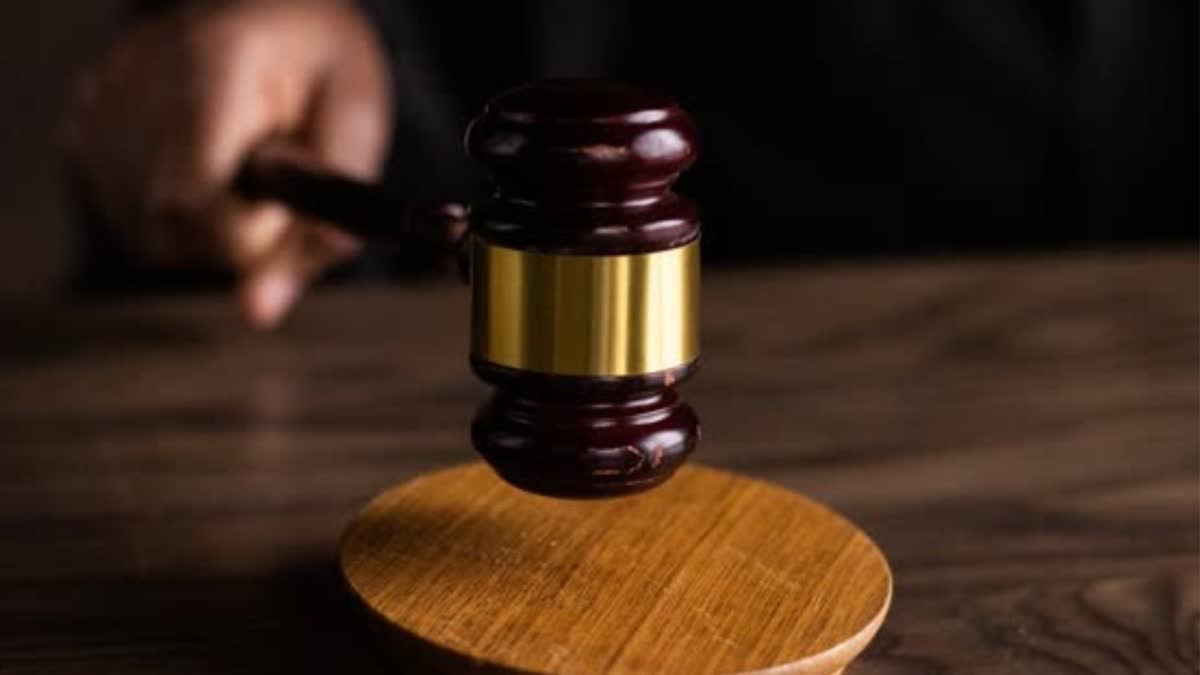New Delhi: The Supreme Court on Monday observed that a law-regulated institution of a religious community does not "ipso facto violate the principle of secularism". The apex court also observed that state Act does not constitute the madrasa board as a university, and perhaps the provisions of the state Act in so far as they authorise the madrasa board to confer degrees may be in conflict with section 22 of the UGC Act.
A three-judge bench led by Chief Justice of India D Y Chandrachud and comprising justices J B Pardiwala and Manoj Misra was hearing the challenge to the striking down of the Uttar Pradesh Board of Madarsa Education Act 2004. The apex court on April 5, had put on hold a judgment delivered by the Allahabad High Court, which scrapped the Act, calling it "unconstitutional" and violative of the principle of secularism. The apex court’s order provided relief to about 17 lakh madrasa students.
During the hearing today, the CJI queried senior advocate Menaka Guruswamy, representing one of the petitioners’, why did the high court hold it unconstitutional? The Act is very clear, it prescribed the conditions of service, the making of regulations etc and its broadly a regulatory statute. Guruswamy replied that they conflate regulations with the religious instructions and held that it is violating the secular structure, and stressed that the board provides a general education.
The CJI said the board is not the authority which provides education, it is only a regulatory mechanism to ensure the quality, and it is important for the state to ensure that young children get broad based education, apart from religious instructions, to lead a proper life and to become worthy citizens. The counsel said that apart from religious instructions there are subjects like maths, physics, science etc. "Sanskrit is being taught. Hindi, elementary math, social science, everything is being taught," submitted Guruswamy.
The bench queried, did the madarsa confer degrees for higher education like in Bachelors of Arts etc. The bench was informed that they only grant certificates, and the high court should not have entered into this area. The bench noted madrasas were only granting certificates and not awarding degrees.
The bench noted that anything that falls under the UGC Act, the madrasa board will be subservient to it, and UGC says that unless you are recognized, no conferment of degree can be done.
According to the Section 22 of the UGC Act, the right of conferring or granting degrees shall be exercised only by a university established or incorporated by or under a central act, a provincial act or a state act or an institution deemed to be a university Under section 3 or an institution specially empowered by national parliament to confer a grant degree.
The bench asked, if a student who has studied in madrasa till undergraduate, he gets a certificate and after that he wants to apply for postgraduate outside, what will be the relevance of the certificate? A counsel said since they were not granting degrees, they were not contravening any UGC regulations.
Citing section 22 and 23 of UGC Act, the bench said, in other words, one thing is very clear that the state act does not constitute the madrasa board as a university, and it is not a university.
“Therefore, it cannot confer any degree. Therefore, perhaps the provisions of the state Act insofar as they authorise the madrasa board to confer degrees may be in conflict with section 22 of the UGC Act”, said the bench. The counsel contended that violation does not exist, as they are not conferring degrees.
Senior lawyers including Abhishek Manu Singhvi, Salman Khursheed, representing some of the petitioners’, also argued before the bench.
The bench also cited Articles 28 and 30 of the Constitution which deal with the right of minorities to establish and administer educational institutions. The bench, referring to Article 28, said that no religious instruction shall be provided in any educational institution wholly maintained out of state funds.
Khursheed said madrasas have to be fully funded by states to fall under Article 28 and moreover, such institutes are partially funded by the states which only pay salaries to the teachers. Guruswamy said the high court started like a service case and then took suo-motu cognisance and wrongly held the Act violative of principle of secularism.
On the suo moto aspect, Justice Pardiwala said the high court may have felt quality education was not being imparted and only religious teachings were being offered.
The CJI said a law-regulated institution of a religious community does not "ipso facto violates the principle of secularism" and referred to the Hindu endowment institutions saying it did not offend secularism of the state. "A Zoroastrian institution or a Buddhist institution may teach a course in medicine, not necessarily it only gives religious teachings," the CJI said.
The apex court will continue hearing the matter on October 22.



